The Scandalous Plastic in Tea Bags – Who Knew?
Oh tea-bags, you innocent-looking things, you. Thinking that just by turning yourselves into a delicious cup of tea I wouldn’t question you. In fact, I didn’t question you. Luckily for me, others did, which led me to this revelation: teabags contain plastic.
Last July I decided to switch to loose leaf tea because I found it hard to find teabags that were plastic-free. By plastic-free, I mean teabags in boxes neither smothered in plastic on the outside, or teabags wrapped in plastic inside the box instead. I also got thinking about how wasteful teabags were compared to loose leaf tea, and how much better the latter tastes.
But not once did it occur to me that the majority of teabags are actually made with plastic.
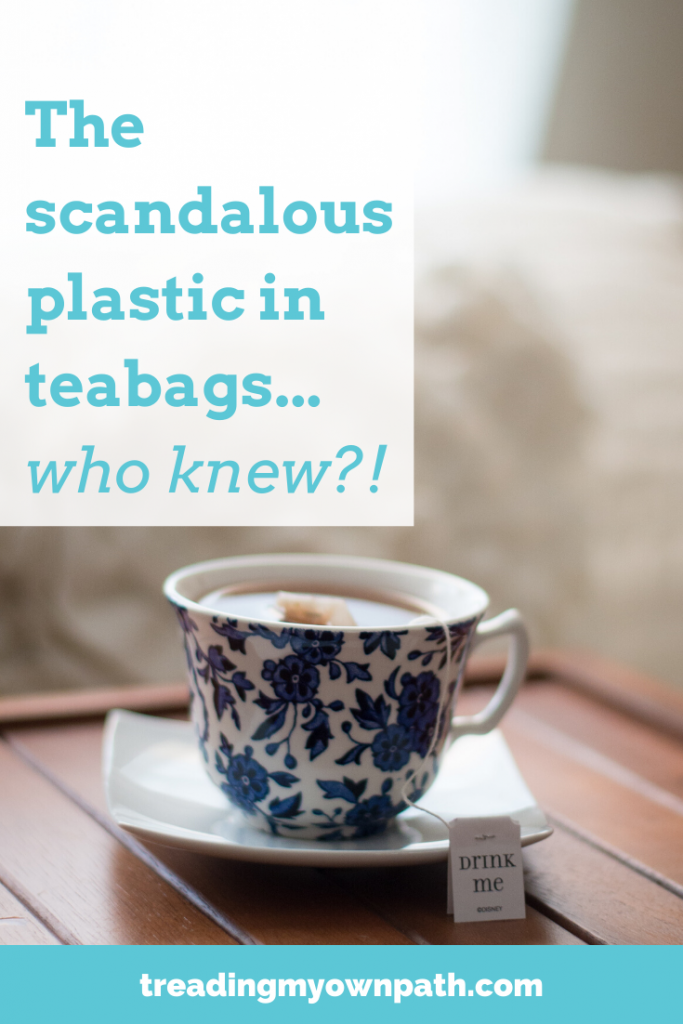
The First Revelation: Teabags Contain Plastic
Browsing the Trashed website (read my review of this powerful documentary), I came upon the list “10 Small Things”. Nestled between “Use a wooden toothbrush” and “Shop at the Farmers’ Market” (both things I’ve discussed here many times!), I found this: “Have a nice (for the environment) cup of tea”. It turns out that teabags are actually only 70-80% biodegradable because they also contain polypropylene!
Not only that, but apparently 165 million cups of tea are drunk in the UK alone every day. So whilst the plastic in one teabag might seem negligible, all those cups of tea are actually contributing surprisingly to plastic waste.
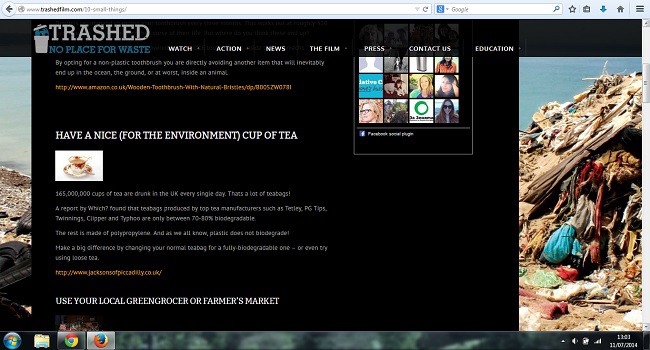
Sneaky screengrab from the Trashed film website: One of their ten tips for reducing waste is using loose leaf tea – because teabags contain plastic!
Revelation Two: Almost ALL Teabag Manufacturers Use Plastic in their Teabags
Feeling like an investigative journalist, I dug out the 2010 Which? article which found that the majority of teabags, including those by PG Tips and Teadirect, contained polypropylene (plastic #5). In fact, they only found one brand that didn’t: Jacksons of Picadilly. A Guardian article also published in 2010 stated that (according to the UK Tea Council) 96% of those 165 million cups of tea drunk in the UK every day were made with teabags. It also revealed that Twinings, Clipper, Tetley and Typhoo also make their teabags using plastic.
Twinings! I was so pleased last year when I thought I’d finally found a plastic-free brand of teabag. Now I find that they may not use plastic in their packaging but they’re using it in the actual teabag!
Something else caught my eye in the article, and it made me really mad. It’s a quote from Teadirect’s Whitney Kakos (who according to the internet, was the Sustainability Manager for Teadirect in 2010). She said: “Most consumers don’t notice [the polypropylene] and probably don’t care.”
Well I’ve noticed, and I care, and I don’t think I’m the only one!
Revelation Three: The Research is OLD but the findings are CURRENT
These articles were written in 2010, which was four years ago, so it’s possible that things have changed. Whilst I was busy researching all of this, by chance (or destiny?!) another plastic-free blogger @Westywrites was doing her own research into teabags, and contacting all the companies in question asking whether they still use plastic in their teabags.
Not writing letters and sitting patiently for a reply, she was straight onto Twitter to find out what was going on.
Here’s what she asked:
[Dear Tea Company] Can you please let me know if you use plasticisers, or a similar material, in your tea bags? Thank you.
Here are the answers (so far):
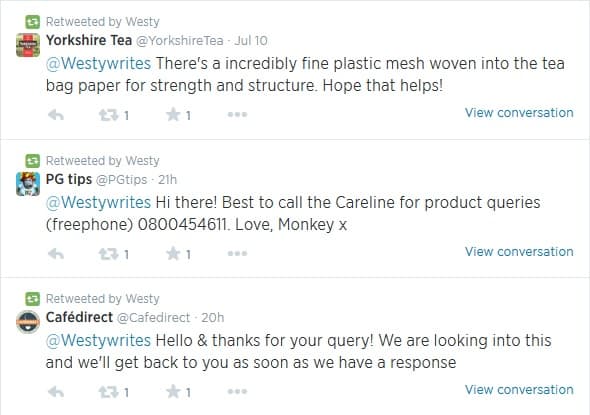
(There’s since been a phone call to PG Tips, who confirmed that yes, their teabags contain plastic).
Revelation Five: The World’s gone Mad
This is the final revelation: something I discovered yesterday. You can now buy tea in individual plastic pods (like the coffee pods)!
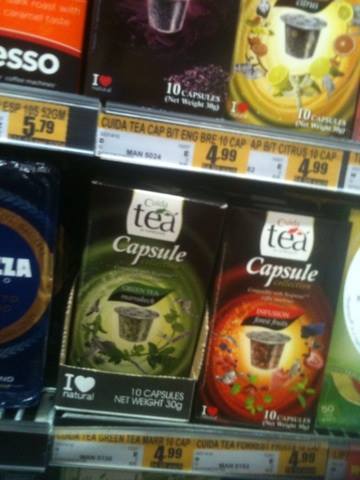
Individual portions of tea in individual single-use plastic pods. What a waste. Photo borrowed from my friend Amy.
These aren’t teabags containing plastic, they’re worse! Individual plastic pods with single portions of tea! What’s wrong with the world? How hard is it to use a teabag? A plastic-free one, actually, might be fairly hard. Okay then, how about just using a teapot and strainer?!
 The Solution: Drink Loose Leaf Tea!
The best zero-waste option for tea drinkers everywhere is to make the switch from teabags to tea leaves. The tea is superior quality and tastes far better, and you’re helping keep plastic out of the environment.
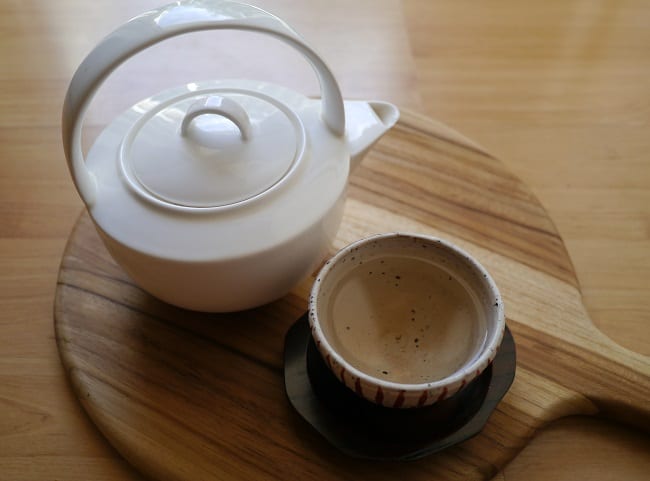
Use a teapot, brew some proper tea leaves and enjoy a refreshing plastic-free cup of tea. Just remember to use a strainer!
Now I want to hear from you! Did you know that teabags contained plastic? Are you as mad as me about this?! Do you use teabags or are you already a loose leaf tea drinker? Please let me know your thoughts in the comments!
Footnote – Because of the popularity of this post, I wrote another in 2018 with more details as to exactly what is in each type of teabag, and how you can tell if they contain plastic or not. More details here.
[leadpages_leadbox leadbox_id=1429a0746639c5] [/leadpages_leadbox]
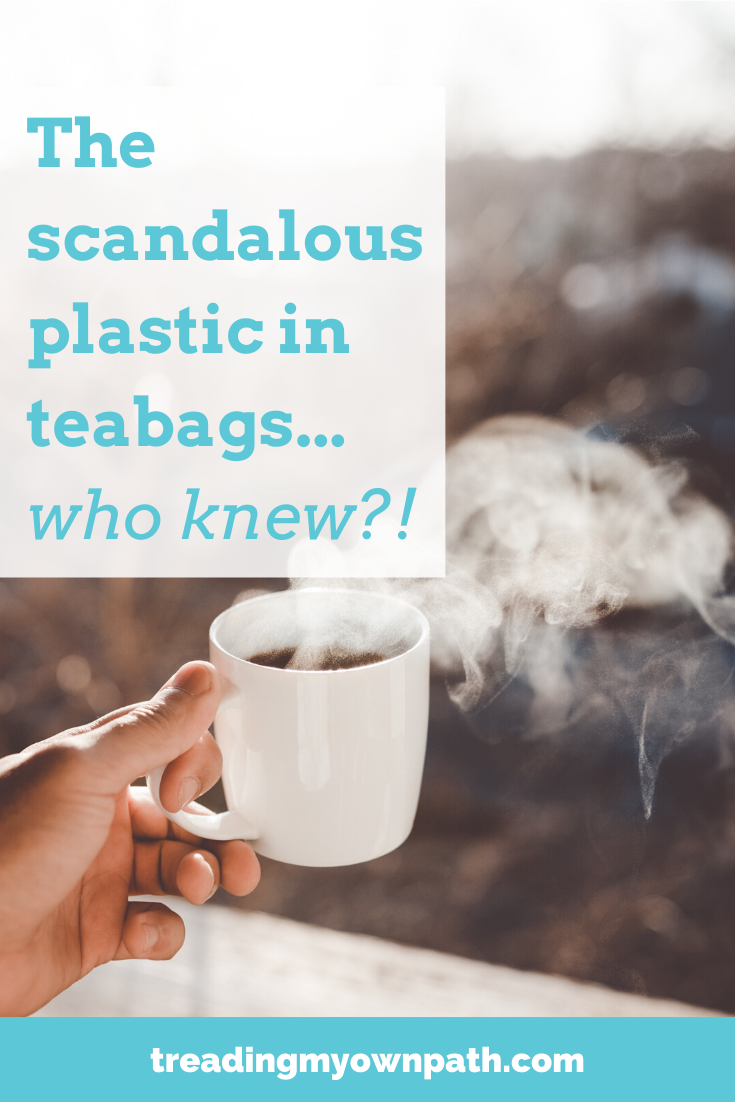

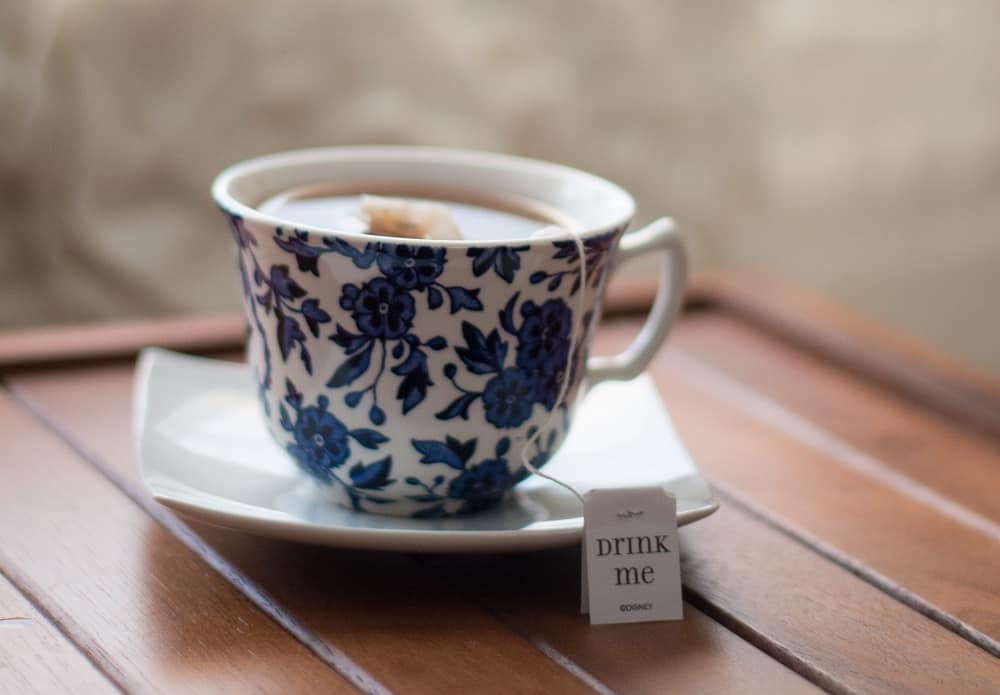

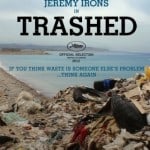
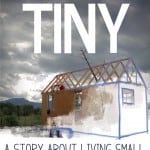

I find tea-infusers give me all the convenience of a tea-bag without the waste. I have more than one of these at home to make tea for my visitors too. https://commons.wikimedia.org/wiki/File:Tea_infuser_2.png
I agree Jo! They are kind of a reusable tea bag! I only have 1; I have a regular strainer for when I need to make a big pot : )
I was aware that tea bags contain plastic but didn’t know how much. Every time I make a cup of tea I think about this. I also think about the individually wrapped teabags in paper that seem a bit too shiny to be just paper.
The thing that stops me from switching to loose leaf tea, however, is that I find it gard to find loose leaf tea that doesn’t have a foil/plastic bag containing the leaves.
Something that concerns me about this misinformation of teabags is how people deal with their waste. A lot of people put their teabags into compost so plastic may be getting into people’s food that they grow themselves. The paper bags that individual teabags come in… what happens to then at the recycling plant?
Thanks for your comment Julie! Someone told me that you can soak the envelopes in a glass of water. If they are still intact in a week, they are plastic! I tried this with the Pukka tea sachets (I was at an event that had them) and it stayed perfect for two weeks! So whilst their teabags are plastic-free, the packaging isn’t.
Finding loose leaf tea plastic-free can be a challenge, but some places sell in tins or in paper. You’re unlikely to have much luck at the supermarket, though!
In theory, the paper bags are recyclable. In practice, they are so small that they might not make it through the machinery to be recycled.Recycling is complex and putting something in the right bin doesn’t guarantee the end result!
I only use teabags when I’m drinking tea away from home but it’s nothing like as good as loose leaf. Now I have another good reason not to use them. I will start using an infuser instead when I can’t use a pot!
Hi Gillian – sounds like a plan! That’s what I do. It’s like a reusable teabag!
I didn’t know. Not happy. Also been putting them into my composer
I put mine in the compost too, Louise! Well, technically the worm farm. I’ve been able to pick the skeletons out and dispose of them. You may see them when you spread the compost – just look out for them!
Same! Poor worms :(
Polyester is biodegradable. I’m not saying it is good to have plastic tea-bags, but you may want to add this information to your decision making.
Hi Anni, unfortunately whilst natural polyesters are biodegradable, very few synthetic ones are thought to biodegradable: the majority are not biodegradable. Regardless, the plastic most commonly used in teabags is polypropylene, another type of plastic that is also not biodegradable.
Biodegradability aside, using fossil fuels to make tea bags seems a little unnecessary when we can just use loose leaf tea instead, I think!
I knew but I can only drink decaf and haven’t seen any loose leaf decaf. There is a solution DRINK WATER
Hi Graham, I suspect you’d need a specialist tea shop to find it – or the internet, that has everything! I don’t doubt that it exists – the challenge is to find it. Let’s face it, water isn’t quite the same ; )
There are decaf loose teas but difficult to find. I buy from my local Deli
I believe Red Rose tea changed their bags and they are now made from plant material. As for them still containing plastic that I do not know.
Hi Jackie, that’s good news – so long as the plant material isn’t bioplastic! (Personally, I don’t like plant-based bioplastic because it only biodegrades in hot composting systems, is made from corn so may be contaminated with GM, and uses a lot of resources to make – which seems unnecessary for something that’s used for minutes!) Usually the bioplastic bags are labelled as “silk”. Hopefully these are okay! : )
I wasn’t aware of this fact either. I love tea and I drank loose tea even before embarking on my ZW journey but I still used teabags as well. (I once got a few silken handwoven teabags – at least this luxury was biodegradable – but I am not going to imagine the little hands that did the weaving…) Anyway, I am now consciously choosing loose tea and use the exact infuser as Jo from comment below) at work and a strainer at home. I have recently found a tea place where I can shop into my reusable tea tin – the cashier was so impressed with my ‘shopping method’ :))
On the other hand, my boyfriend loves the Irish breakfast tea and he finds making loose tea too much hassle(men!) so I do buy the biggest box of Lyons black tea to minimise the packaging as the box is wrapped in a thin plastic film. You inspired me to tweet the Lyons Tea company (one of two favourite tea brands in Ireland) to find out about their approach to teabags and they tweeted back that they don’t use any plastic and their teabags are fully biodegradable. That’s a yipee right there. It’s still a compromise but one I can live with.
That’s great news that you have a tea store that you can shop at and bring your own container : ) We have a few here but I know it’s a luxury not everybody has. Good to hear Lyons don’t use plastic in their teabags. I think asking questions is important – I think for too long I just made assumptions about things. Now I always like to ask questions before assuming anything!
We all make compromises ; ) And I think they often seem to involve partners/boyfriends/husbands!
Thanks so much! I had no idea! I was speaking to a family member the other day who told me that they also put dye in tea so that when the hot water is poured in it changes colour straight away! I have been drinking lemon myrtle tea – leaves straight from my tree, which has been quite nice.
Dye in tea – is that true Che?! I bet some of the cheaper brands have thought about it at least! Teabag tea is a inferior grade to loose leaf too – so many reasons to switch!
I love lemon myrtle. One of my favourite scents – but I haven’t tried tea… yet!
Hi Lindsay, after reading your blog post I emailed Twinings about their tea bags and they were very quick to respond:
“Twinings tea bag paper is produced from the abacá plant which belongs to the banana family, Musaceae. It is chosen due to its long, strong fibres. The ‘String and tag’ tea bags are sealed by crimping the paper tightly down the centre and folding and using a cotton stitch at the top, these do not have any polyethylene component. As such these teabags do not contain plastic.”
I think, given this information, that it is unfair of you to use them as a poster image for your otherwise, very insightful and relevant post. Considering how much your post has been shared you might consider changing it.
I have no affiliation with Twinings – I’m just a journo that likes to check my facts. Plus I love Twinings Earl Grey Tea – it’s my saviour on hungover mornings :)
Cheers, Deb
It might have something to do something with the fact that the article was written 2 years ago. Perhaps Twinings changes their teabag strategy since…but I agree, if that’s the fact, the pic should be changed.
Hi Deborah and thanks so much for your comment! That’s great news. I did originally write this over 2 years ago, so it is good to hear that things have changed. Twinings phased out using a staple on their teabags some time after 2011 so this image of my tea bag is pretty old now. When I wrote this Twinings tea bags contained plastic – I found little plastic skeletons in my worm farm years later!
I guess I wasn’t to know when I wrote it that two years later it would suddenly get so much traffic two years on. I’ll have to take another photo – it’s a case of remembering to take my camera when I go to the store, I think!
Thanks for the suggestion! : )
Hi,
I’ve recently emailed Twinings regarding their 80 pack English Breakfast Organic Fair trade teabags, and they confirm these do contain plastic. This is their response:-
“Our standard teabags (Heat-seal) are used for such as Earl Grey and English Breakfast, to name a couple, and many of our infusions and Green teas. This paper is produced from a natural plant based cellulose material and contain no plastic in the fibres. However, these teabags are “heat sealed” tea bags, and so the paper also has a very thin film of polypropylene, a plastic, which enables the two layers of the tea bags to be sealed together.
We would not recommend that teabags are used directly on the soil as a ‘fertilizer’ or soil conditioner, as they are likely to take a longer time to breakdown. We would recommend that they are composted in a compost bin, or wormery first to optimize the availability of any nutrients for the plants.”
Thanks for sharing this Elaine! You’ll notice that I did change the cover image. It wasn’t that I intended to single Twinings out, it was just that I had a Twinings tea bag in my cupboard at the time I wrote this! Sad to hear that after all the publicity though, they still have not completely changed their ways :/
I will definitely be drinking loose leaf tea from now on. It tastes so much better! Thanks for opening my eyes to this issue.
P.s. have just received a reply from Clipper to confirm they still use polypropylene in all their unbleached tea bags.
Loose leaf tea is superior in so many ways! Clipper is a company that surprises everybody because they spruik the health benefits of their unbleached natural teabags so much! Greenwashing sadly :/
thank you. That does it! I’ve been using Twinings for years, and always put them in the compost bin, and wondering if I should switch to loose leaf, but I’m wondering no more!
Loose leaf tastes far better too, Lois! Plus I’m sure it makes superior compost! ; )
From Nerada Tea
Thank you for your enquiry.
Nerada Tea is continually keeping up to pace with consumer health issues and
from time to time you will see changes in our production. Nerada Tea has
HACCP and GMP Management System Certification, which are audited yearly. We
make every effort to ensure our ingredients and all materials used, including
the paper, are of the highest possible standard. Our paper is manufactured
from a specially selected blend of high quality manila hemp. This has been
oxygen whitened, ie. not treated with chlorine or chlorine based compounds.
The paper also includes a small percentage of cellulose and thermoplastic
fibres. These are necessary to ensure the sealing of the bags. The heatseal
paper is certified as a food grade paper internationally and is manufactured
for the specific purpose of infusions, tea, herbs and coffee in boiling water.
The thermo-plastic fibres in the paper are not chemically broken down in any
way so as to leach into the infused beverage – so it is 100% safe when used
for the purpose it was made for. However, the heatseal paper is not 100%
bio-degradable due to small amount of thermo-plastic fibre it contains.
Nerada (along with many other tea packers in the world) use teabag machines
that use heat to seal the filter paper closed so for us there is no other
alternative. The paper itself is sustainable and safe. The main component is
manila hemp the cultivation of which is in itself is sustainable.
Thank you so much for sharing this! It is great to have some up-to-date info about this. I’m disappointed to hear that – Nerada tea is one of the more “natural” brands : ( Still, I appreciate their transparency.
I’m very sorry to hear about Nerada Teas, they are my favourite herbal teas. I had emailed them after first reading your article and not received a reply to date, so it was good to read their reply to you. Looks like growing our own herbal teas is the only way as you never seem to find packs of loose herbal teas, unless some of the specialist tea shops in the cities do them? Thanks for your interesting and informative article.
Colleen, I think it’s really disappointing, especially when those brands who pride themselves on being “natural” use plastic. Hopefully they will phase it out at some stage. Keep the pressure on them!
I have an EVEN BETTER solution. I grow a lemon myrtle tree in my backyard, and every few weeks I take a small branch inside to dry out the leaves. I crunch a couple of these into a mug and pour boiling water over them. Ta daa! A caffeine free, packaging free, refreshing cuppa! :)
Ernie, I’d love to have a lemon myrtle tree! It must be my favourite Australian bush scent : ) How big do the trees grow? I’ll have to look into this!
what should I do if I want tea when I’m out and about? Now I’m hesitant to order tea at a restaurant.
Hi Angie, you could ask if they serve loose leaf? Here I find more and more places do… and I feel better about spending that money on a proper cup of tea than a cheap plastic teabag!
take your own tea in an infuser and just ask for a cup of hot water, I often do it.
I like that idea, Marnie! :)
No more tea bags for me!
Yay Bev! Another loose leaf convert : )
It gets harder and harder to get loose leaf tea. I have both types,but from now on,the tea bags are out ! Thank you for this information.H
Hopefully if more people start ditching the teabags and buying loose leaf Hilary, then it will get easier! I have hope! : )
is polypropylene carcinogenic. IS it being absorbed into the water itself ?
Hi Heath, thanks for your question. I don’t think any plastics are considered carcinogenic, it is the additives that are used that seem to have health implications. As for anything being absorbed into the water, it was discovered that BPA (an additive of polycarbonate plastic) was getting into water fairly recently, and I’m not sure any tests have been done on teabags. It is known that plastic degrades on heating but health implications of plastic are mostly unknown. Considering there is a completely safe and simple alternative – using loose leaf tea – I personally have chosen to avoid teabags.
Thanks so much for this article. We drink a lot of tea in our house and I had no idea. I looked into going loose leaf recently and didn’t because crazily it was much more expensive but this has motivated me to do it anyway. I have been making steps this year to move my family towards zero waste – I say towards because it is a work in progress as we have no bulk food store any where near us and our current house building, 2 kids, wedding planning schedule doesn’t make visiting the few farmers markets a fair way away a consistent option. One area I am really struggling with on a tight budget (I am in Australia by the way) is that the bulk food stores sell their produce so much more expensively than what I can buy it elsewhere. For example coffee 3 times the price, laundry liquid 4 times the price. I have started making my own cleaning and laundry and dishwashing products from basic ingredients but other things aren’t as easy to DIY and having to DIY everything is a little time consuming right now. I saw a great facebook post by someone yesterday exposing Woolworths pricing practice of making excessively packaged fruit and veg much cheaper than zero packaged items and I can’t help but lament that pricing is a huge disincentive to reducing our packaging ways. I will keep searching though. Thanks
Hi Siobhain, thanks so much for commenting! Loose leaf tea can seem expensive (especially if you look at the price per kilogram!) but it does go a lot further. Teabags are made with “dust” which is a low grade tea, and loose tea is better quality. as someone who always reused their teabags a couple of times minimum (I prefer weak tea) I’ve found that I can get a few pots out of loose leaf tea. (I don’t drink black tea, more green tea, peppermint tea etc so this might not be the same with black tea.) So you might find that overall it isn’t much more expensive. Definitely play around with quantities – you might be surprised!
I find that bulk stores differ wildly in price. Our local store is great but it has a focus on natural, healthy foods and a lot of its products are organic, so it is expensive. There are some Italian bulk stores that are very affordable further away, but factoring in a 40 minute trip each way means I tend to use the local store – time is money too. That said, for some things I wait until I am heading to the other store. I found that over time I learned which places were more affordable for different things, and some stuff I tended not to buy in favour of other, cheaper things. For example, I tend to buy more lentil-type things and oats now. Popping corn is a great, cheap snack.
Coffee is on that varies wildly. Our local bulk store sells beans at $69/kilo. The cheap 40 minute away store sells coffee beans for $20/kilo. That is a massive difference! There’s no way I’d pay that much for coffee, but we drink it often and the other place is too inconvenient for regular shops. Eventually we found a local cafe that roast their own beans and refill bags, that costs $35/kilo. Not the cheapest but more convenient and really fresh. Over time you’ll probably find there are more options and you can find a way that works for you.
For me, what helped regarding the pricing was that I wouldn’t look at the plastic-packaged stuff at all. That way I wouldn’t be tempted, or feel ripped off. I’d have a shopping list, and then I’d look at the loose stuff and my option was “buy it” or “don’t buy it” if I felt it was too expensive. I wouldn’t even know what the “cheaper” option was – I removed it from my radar. Am I happy to pay $4 for an avocado? Either yes or no, but no sneaking over to the plastic section to find that they are cheaper and feel tormented! One thing that really helps with this is learning what’s in season. When stuff is in season it is usually cheaper loose. The supermarkets won’t tell you, but the internet will ;) Another useful tip is finding out what freezes well. You can freeze avocados and bananas, for example, so when they are cheaper you can stock up.
I hope that helps! I hear your frustration. Whereabouts in Australia are you? I’d love to give you some more location-specific tips! Let me know and maybe I can put you in touch with someone closer to you! : ) Good luck with it all. And don’t give up the search! x
I too am in Aus and am frustrated by lack of bulk stores that aren’t full of organic (and therefore $$$$$) products. Was looking for bulk rolled oats yesterday, and the only ones I could find were more expensive than at the local store :( If you’ve got location-specific tips, I’d love them!! I’m in Brisbane.
Thanks for your insightful research! What really got me started was visiting a Café, (I can’t remember which one), in Manchester Arndale in 2014, whereupon lifting the Teabag out of the cup, I was curious to see that the ‘side’ (of the Teabag) appeared to be ‘shiny’?
Upon closer examination, I found that the ‘entire’ Teabag had a ‘plasticated’ feel to it? In fact the ‘whole’ Teabag was completely made of plastic, (with ‘diagonal’ vent holes) and not a single strand of paper!
My first reaction was absolute rage that in an ‘environmental’ age, how could a Tea Producer (be so wilfully ignorant) as to actually make damaging products like this? And with your quote of one of them saying that the public ‘probably don’t care’, stretches incredulity to the maximum!
What should be an absolute ‘given’ (by all Tea Producers) is that ALL Teabags are ‘bio-degradable’!
Ged L
Hi Ged, thanks so much for your comment! I think this completely sums up how we just assume things are green (or want to believe they are so). Companies spend so much money convincing us of their sustainable credentials, and for me this was a real lesson in asking questions, not assuming and really looking into the details. I assumed that because it looks like paper, it was paper!
What also shocks me is how many companies still think that using this plastic is harmless. I think over the coming years plastic is going to become more and more unacceptable -at least, single plastic like this, that is completely unnecessary. That’s my hope :)
It should be no surprise really that plastic is used in teabags… plastic seems to be in so many foods in one way or another. But I’d not actually heard that, so, very interesting! Really quite horrific and something I’ve been eradicating from my food cupboard and kitchen as much as possible.
And you’re right about using lose tea.. I have for three years now, I’d never go back to tea bags, it’s not even the same quality and flavour of tee. Lose tea is amazing, tastes like real tea… haha… no surprise there either… that’s what it is.. beautiful pure tea!
Excellent article Lindsay, I shall give it a tweet!
Has anyone checked to see if Twinings uses pesticides that are then in their loose tea? Does anyone know about Fortnum & Mason’s loose tea? Pesticides?
Hi Emilie! I have read that tea is notoriously high in pesticides, and I would expect that unless a company states their tea is spray free or organic that it would contain pesticides.
Dear Lindsay
I recently wrote to PG Tips about the plastic in their teabags – see copies my comments and their reply. They were not keen to admit that there is an issue, saying that “although there is a small amount of non compostable material this is not a problem”! which I find incredible!
Best wishes
Mike Armitage
CEO and Editor – Nature Matters (www.naturematters.org.uk)
Dear Emma
I have been composting tea bags for many years, so I already understand the processes and benefits of doing this.
However, my point is that tea bags do need to be made from 100% compostable/biodegradable materials, not just 80%. Polypropylene is a plastic and 20% is not a a small or insignificant amount when multiplied up by the vast number used daily and all of this material remains un-degraded in the environment.
You say that plastics are not a problem but this is simply not true. There have been many campaigns to keep plastics and micro plastics out of our water courses and seas as they are causing pollution. The same is true of plastics on land as they can cause harm to birds and small mammals and cause littering. We need to keep all plastics OUT of our environment.
I believe that it is possible to use another material that is biodegradable – plant- or fabric- based, possibly. In fact, I understand that there is already one brand of conventional teabag which is polypropylene-free made by Jacksons of Piccadilly, so it is technically and practically possible.
I feel it is time for Unilever and PG Tips to change and put environmental issues to the forefront of their policies. Saying there is no problem is just burying your head in the sand.
Yours sincerely
Mike Armitage
Hello From PG Tips,
Thank you for your recent reply to myself, Mr Armitage.
Like most of the tea bags in the UK, PG tips tea bags are made with around 80% paper fibre which is fully compostable along with the tea leaves contained in the bag. The remaining packaging includes a small amount of plastic which is not fully biodegradable, this is needed to create a seal to keep the tea leaves inside the bag.
The tea bags can be added to a compost bin and the majority of the bag will decompose quickly adding moisture and nitrogen. If people are worried about the small amount of material that is not fully compostable we would recommend removing the bag before putting the tea leaves on the compost. Tea bags CAN be composted / added to food waste collection and although there is a small amount of non compostable material this is not a problem.
I hope you find this information helpful.
We hope that you carry on enjoying PG Tips and thank you for your continued interest.
Yours sincerely,
Emma Moffett
Consumer Engagement Advisor
Hi Mike, thanks so much for sharing this. I really liked your letter, and of course the reply was very frustrating. I find the whole”everyone else is doing it” to be such a non-argument. Why should it matter that everyone else is doing it? I’m pretty sure at playgroup, school, work, life in general that doesn’t justify doing the wrong thing!
We can just putting pressure on these companies and doing what we can. Not all companies use plastic, so it is definitely possible :)
checked with pukka teas – found this in their FAQs
Are your tea bags sealed using any forms of glue or heat?
No, our teabags are not heat sealed; therefore they do not require a glue of any kind to keep them closed. The machine folds the bag and sews it shut with a single piece of cotton thread. Some other manufactures use teabags which have a polypropylene (PP) lining which when heated bonds together to seal the tea inside.
I love that Pukka teas are so transparent, Gill, and wish that more companies were like that. You’re right, Pukka teabags are plastic-free; unfortunately the individual wrappers they come in are plastic and non – recyclable (this information is also on their website). So for me, that’s still a no. :(
I am appalled. They need to changed asap. Goodbye Yorkshire Tea
I was shocked when I found out too Derek! Now I’m much happier with my loose leaf :)
I was buying our favourite brand, Yorkshire Tea, loose but I knew the tea was packed in non-recyclable foil/plastic so didn’t feel this was better – it was just easier to compost the tea! In fact it may be worse. The local supermarket stopped stocking loose tea and I went back to tea bags -they are packed in a box packed in a thin plastic film. Now I’ve got the knack of quickly tearing open all the teabags to use the tea for compost – which sounds like a faff but doesn’t actually take long at all! Not a solution to the plastic waste of course. We’re rather fond of Yorkshire Tea but have you found any brands of loose tea with no undesirable packaging? I do have a tea bush which is growing well and hope to grow a tea hedge – maybe this is the way to go!!
Hi Alison, some tea brands still package their tea in tins. Not that you’ll find these at the supermarket. Also, Whittards used to sell loose leaf without any packaging. There are options out there if you start to look! :)
I most often use loose green tea but we also buy tea bags from Morrisons, Twinings and Clipper so I have tweeted them to ask if their teabags contain plastic.
I know Clipper use plastic. Twinings don’t for their string and tag bags, but they do for the squares. Let me know what Morrisons say! :)
THis is an eye opener , I only use loose leaf tea but will pass this on , thanks for sharing Penny dear xxxx
Happy to help Penny :)
I have just ordered a tea infuser on the back of this!
Hurrah! Plastic free tea for you! :)
I live in Canada, does Redrose tea use plastic ? I am appalled ! Thankyou for your investigative journalism.
Hi Colin and Mary! I don’t know about every single brand (there are too many!) so I would recommend asking them to check. And please let me know what you find out! :)
I didn’t know that the tea bags themselves contained plastic and tbh never even thought about it. I drink both tea bags and loose leaf tea, but mainly I only drink loose leaf if I’m making a pot. Some cafes use loose leaf tea and put it in a bag- are those kind plastic? If they don’t then that would be a happy compromise for some people.
Hi Naomi! I’ve never seen that before. Are the bags reusable? If so it sounds like a good idea!
Thanks for bringing this issue to light – I had no idea. I always make sure i buy fairtrade tea but did not realise I should be worrying about plastic! I just phoned Traidcraft, Unfortunately their teabags also contain plastic polymers, someone else had asked them the same question a few weeks so word is getting around!
Glad you called them, Ruth! Yes, every year more and more people start to ask the question – and they don’t like the answer! Eventually we can put enough pressure on the companies to change their ways, I am sure of it! :)
Thank you so much. I have been so unaware.
I love supporting our environment and the world by thinking of ways to help the planet though you have helped me become aware of how little i actually do. And i love tea and loose leaf.
The ritual of tea drinking is special and im excited to have my next pot.
Thank you for educating me
Pleasure Amanda! Glad to have you along for the ride. :) Seriously though – teabags are probably the last place you’d look to expect to find plastic! You’re right, loose leaf tea drinking is such a special ritual.
I use mainly loose-leaf, Jasmine tea leaves in the morning, Earl Grey tea leaves in the afternoon. But also drink Rooibos that comes in teabags and Betty’s. Does anyone know if these tea bags have plastic in them? And can anybody recommend a good infuser? Will look into Jackson’s of Piccadilly.
Hi Rosie! I’d recommend writing to the specific brands and asking them – and please let me know what you find out!
When I lived in the US 20 years ago there was evidence that the process that decaffinated coffe went through was carsonagenic
Do you know wether this is still the case?
Hi Anne, the Swiss water method for decaffeinating coffee is thought to be the best option.
I’ve been drinking ‘organic india’
Tulsa with lemon ginger & tumeric.
Organic, non gmo. I haven’t ever seen it loose leaf.
So many companies use pesticides, we need to let them know we won’t buy their products.
I just threw in the trash all the lipton tea.
Hi Janet! I totally agree – where we can, we should be supporting the companies that try to do the right thing and tell the companies we don’t like why we choose not to purchase them. Communication is key!
Hello and thank you for such a thought provoking article.
I hope everyone will consider ditching the big box stores and searching out small tea shops online.
I hate plastic too, and had heard about those “silken” sachets, which may contain plastic compounds, and certainly some are made from GMO corn.
I offer to my customers, paper tea filters, unbleached, made from sustainably harvested forests in Canada…no plastics. They will quickly fall apart after use and can even be composted. These make it easy to brew your tea at work or while travelling.
I package my teas in cellulose bags, made in England, that are biodegradable. They are inside an American made kraft box, which is made of 100% recycled product, and is again, recyclable. My teas are made from all organic ingredients too.
For the most part, my customers buy their tea in loose leaf form, and already know how to brew their tea. My mission is to help people realize how easy it is to make tea the “old fashioned” way, thank you for your research and bringing this “hidden plastic” to our attention, good luck with YOUR mission.
I leave you my .com address, which you can either leave or omit as you see fit. Just know there are small businesses trying hard to bring to the public, a genuine, earth friendly, tea experience.
Judith
Amitea Organics.com
Hi Judith, thanks so much for sharing! If everyone put as much thought into their products as you do, that would be wonderful. I really enjoyed reading all the steps you’ve taken to reduce waste and care for the planet – and your product. Thank you.
Thanks for the explanation!… I have just been sieving my compost and was pulling out thin bits of non degraded tea bag. I was confused and was trying to remember if I had bought a different tea. But no, tea bags are not degrading in the compost any more…. Then I saw your article… The world is crazy.
Sorry if this comment has been made, but I have a worm farm, and have always had to try to avoid staples in tea bags, they don’t tll you untill you open the box. Now I am thinking about my earthworms eating plastic! Back to loose leaf!
I had no idea. Thanks for sharing. When I used to live in the U.K. my teabags composted fully, as far as I could tell. However, I mostly used loose tea so maybe I didn’t have enough to notice. And that was in the 90s, if it makes any difference. I would never trust anyone who writes “thank you for your reply to myself”. Seriously?
BTW Kakos means bad in Greek.
Does this mean by pouring boiling water on that the plastics from the bags could be leaching into our tea the that we then drink?
Sky should be told – they have an “Sky Ocean Rescue” campaign going on right now! I have just found out that Plastic is in my teabags and I can’t believe it! Loose tea brewed in a glass teapot from now on. How much damage does the plastic in teabags (with boiling water) do to my health. I also have been composting and have found them not to be breaking down and wondered why this was… I just can’t believe that all those teabags used in my life have PLASTIC in them!
I have just checked PUKKA teas website and it states it has plastic in the bags your information is incorrect……
Hi Damian! Pukka teas have always been one of the brands recommended as plastic-free, and you’ll see in the comments they are mentioned a bit. So I was a bit disturbed to read your comment that they now have plastic in their bags?! I just went to their website and can see it has had a redesign, yet in the FAQs it still states their teabags do not contain plastic. I was wondering if you could please share where you found this new information? Were you meaning that they now have cellulose (I don’t recall that being mentioned before)? Thank you!